The 10 Most Controversial Companies Of 2022
Blockbuster acquisitions involving some of the most prominent technology vendors, companies hit by cybersecurity breaches and layoffs from tech stalwarts dominated the list of the most controversial companies in 2022.

Acquisitions of highly regarded channel favorites caused a big backlash in 2022, putting the buyers on the CRN 2022 Most Controversial Companies list.
The acquisition of one long-time MSP channel darling for $6.2 billion sent shock waves through the channel. MSPs voiced concerns from the outset that they would not get the same high-level partnership and channel-friendly experience as a result of the acquisition.
There was also backlash to the acquisition of a market leader by a global semiconductor maker looking to become a bigger player in the multi-cloud software market.
If that wasn’t enough, there were the reverberations from a pioneering software provider that was taken private in a merger with an enterprise software company in a $16.5 billion deal.
Security breaches landed three companies on the CRN Most Controversial companies list: a multicloud solution provider that was flummoxed by a ransomware attack, a CRN Solution Provider 500 powerhouse that was hit with a malware attack over the July 4 weekend and an identity security software provider that grappled with multiple breaches.
The list of the most controversial companies also includes a software behemoth implementing sweeping channel changes, a chip and processor channel champion and a cloud/database behemoth that were hit by layoffs, as well as a security software maker grappling with the fallout from Russia’s invasion of Ukraine.
Here then are CRN’s picks for the Most Controversial Companies of 2022.
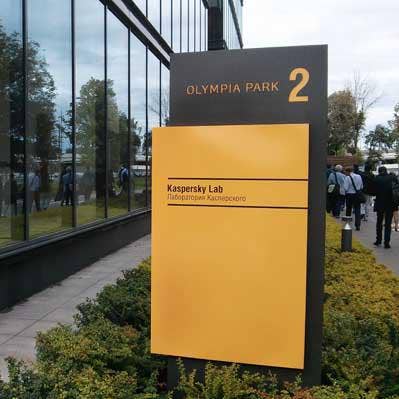
10. Kaspersky: Grapples With Russia’s Invasion of Ukraine
With the Russia invasion of Ukraine in February, security software provider Kaspersky came under increased scrutiny by the U.S. government.
On March 25, the U.S. Federal Communications Commission added Kaspersky to its list of telecommunications equipment and service providers considered a national security risk. The move made Kaspersky the first Russian firm on the list, which previously only included Chinese companies. Kaspersky asserted that the FCC decision was being made on political rather than technical grounds.
In March, the Wall Street Journal reported that the National Security Council had pressed the Treasury Department to ready sanctions against Kaspersky amid longstanding allegations that the Russian government could exploit Kaspersky’s technology to install malicious software on the networks of its customers
Kaspersky strongly denied any links to the Russian government and fired back in an emailed statement to CRN: “The U.S. government’s lack of response to Kaspersky’s good-faith outreach, while proceeding to take actions to further limit Kaspersky, clearly indicates that such regulatory restrictions are political decisions based on speculation rather than facts.”
The company’s software has been banned from federal civilian and military networks since December 2017.
Kaspersky partners faced the fallout from the threats of U.S. sanctions as some customers looked at replacing the company’s software, solution providers told CRN in March. “Customers that are coming up for renewal are obviously looking elsewhere—they’re scared,” said one solution provider CEO who partners with Kaspersky and asked not to be identified.
MSP platform provider Kaseya responded by terminating support for Kaspersky. In an email to MSPs obtained by CRN, Kaseya advised MSPs to switch from Kaspersky antivirus to an offering built on technology from Romania-based cybersecurity vendor Bitdefender.
“Given the FCC’s recent decision to add Kaspersky to its National Security Threat list, we are urging our small number of remaining KAV [Kaspersky anti-virus] customers to upgrade to our best-in-class AV solution, powered by Bitdefender ASAP,” Kaseya wrote. Kaseya is a reseller of Bitdefender products.
Kaspersky Channel Chief Matthew Courchesne, who had led Kaspersky’s North American B2B channel team since early 2019, left to join cybersecurity firm Cyware, also as channel chief for North America.
Kaspersky remained undeterred, announcing in June the opening of three new “transparency centers” around the globe for customers and others to review the firm’s source codes for various products. That move was described by a Kaspersky executive as an attempt to “prove that we are a trustworthy and reliable partner.”
Kaspersky also updated its channel program in September to make it more attractive to partners. The new United Partner Program included a revised rebate system, extended training programs, and more rewards for MSPs.
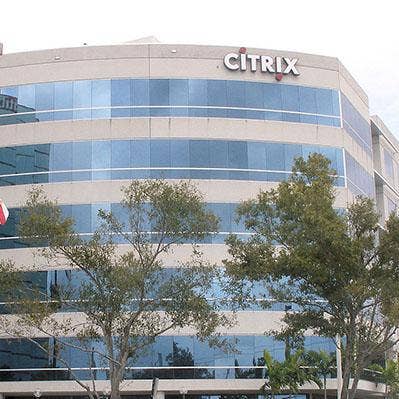
9. Citrix: Gets Taken Private, Merges With Tibco In $16.5 billion Deal, Gets A Fresh Name, New CEO
VDI pioneer Citrix—which was also one of the most controversial companies on CRN’s 2021 list—began 2022 with a $16.5 billion deal to take the company private and merge with enterprise software maker Tibco.
Citrix was bought by Vista Equity Partners and Evergreen Coast Capital, the latter an affiliate of Elliott Investment Management. Tibco has been owned by Vista Equity Partners since 2014.
The CEO of one Citrix partner, who did not want to be identified, told CRN that combined company faces a big challenge in unifying the technology products of both companies. “We are selling big data solutions every single day, and not once has Tibco been part of that conversation,” the CEO said. “If they are thinking they are going to make me into a Tibco reseller, that is a different conversation.”
Partners also told CRN that critical to the deal was getting back to the innovation that had made Citrix a VDI stalwart. “I need an innovation partner,” Ray Wolf, CEO of A2K Partners, a Southlake, Texas-based Citrix partner, told CRN. “Citrix has every ability to be successful when there’s transformation. They have a solid base, a loyal customer base. Their technology works. They just now need to come out with meeting the current and the future requirements of the customer, and give them confidence they can get it done.”
With the deal in the works, Citrix reorganized its channel partner program in a move intended to create a simpler and faster experience for partners. Citrix told CRN in April that Mark Palomba was no longer the Citrix channel chief, change made as part of a decentralization strategy. That decentralization effort also included moving Citrix partner account managers (PAMs) into the sales organizations. In addition, Citrix made changes to make it more profitable for partners to sell Citrix SaaS products.
The Tibco deal came after a tumultuous 2021 for Citrix that included the unexpected departure of President and CEO David Henshall and the appointment of Chairman Bob Calderoni as interim president and CEO.
With the Tibco deal set to be finalized, Citrix announced that Broadcom Software President Tom Krause, who was slated to lead VMware after its acquisition by Broadcom, would become the CEO of the combined Citrix-Tibco software company.
“Citrix and Tibco are pioneers in their respective markets, and I am honored to take the helm of a global enterprise software leader that will continue to accelerate digital transformations and the future of hybrid work,” said Krause in a statement at the time. “I am excited to partner with the leadership teams and talented employees from Citrix and Tibco around the world to drive growth and ensure a successful path forward for the combined company.”
Calderoni said he was “confident and excited” to see how the combined company would accelerate under Krause.
Krause, for his part, said he was looking forward to taking the helm of what he called a “global enterprise software leader” that would accelerate digital transformation and the future of hybrid work. “I am excited to partner with the leadership teams and talented employees from Citrix and Tibco around the world to drive growth and ensure a successful path forward for the combined company,” he said.
In the fall, the combined entity rolled out its new name: Cloud Software Group.
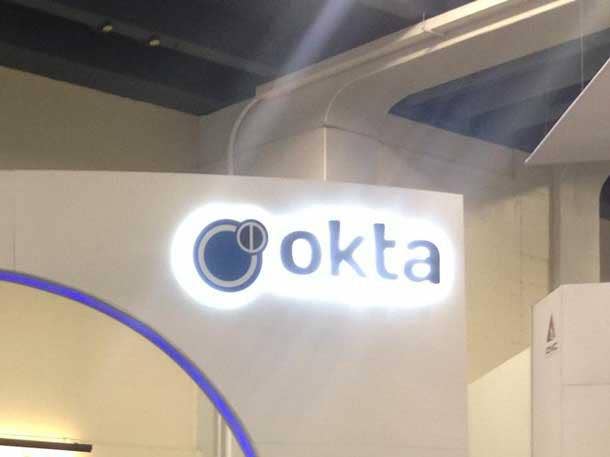
8. Okta: Hit By Breaches
In March, ransomware gang Lapsus$ posted screenshots to its Telegram channel of what it alleged was data from customers of identity security giant Okta.
Lapsus$ claimed it acquired “superuser/admin” access to Okta.com and used that to access Okta’s customer data, according to screenshots posted by BleepingComputer. Lapsus$ said its focus was only on Okta customers, with the data extortion operator claiming that it didn’t access or steal any databases from the San Francisco-based identity and access management titan itself.
“For a service that powers authentication systems to many of the largest corporations (and FEDRAMP approved) I think these security measures are pretty poor,” Lapsus$ boasted on Telegram, according to screenshots.
Okta co-founder and CEO Todd McKinnon said the screenshots shared by Lapsus$ were believed to be connected to an incident from late January, with no evidence of ongoing malicious activity beyond what happened then.
Okta Chief Security Officer David Bradbury said that as many as 366 Okta customers might have had their data acted upon. “A small percentage of customers—approximately 2.5 percent—have potentially been impacted and whose data may have been viewed or acted upon,” said Bradbury.
In the summer Okta was one of the companies hit in a hacking campaign that emanated with Twilio. “Twilio recently identified unauthorized access to information related to 163 Twilio customers, including Okta,” said Okta in a blog post. “Access was gained to internal Twilio systems, where data of some Okta customers was accessible to a threat actor.”
Okta said it had determined that a small number of mobile phone numbers and associated SMS messages containing one-time passwords were accessible to the threat actor.
Okta was also hit by a security breach as the year came to a close, confirming on December 21 that some of its source code had been recently swiped after a hacker gained access to its GitHub repositories.
“In early December 2022, GitHub alerted Okta about possible suspicious access to Okta code repositories,” the company said in its statement. “Upon investigation, we have concluded that such access was used to copy Okta code repositories.”
In a statement, Okta emphasized that its customers were not impacted by the breach and that no action was required by customers.
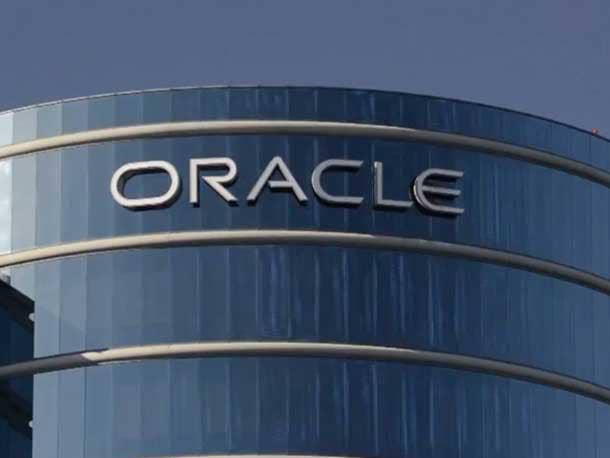
7. Oracle: Retrenches With Layoffs
The reports of massive cuts at Oracle hit on July 8 with The Information reporting that the $42 billion cloud and database behemoth was considering a cost reduction of up to $1 billion.
The Information report also cited the exit of Oracle Chief Marketing Officer CMO Ariel Kelman, who had joined from AWS two years earlier, and Juergen Lindner, senior vice president and CMO of Oracle Cloud Applications.
The layoff reports came just after Oracle closed its $28 billion acquisition of Cerner. That deal was aimed at giving Oracle a deeper presence in the health care technology space. The acquisition brought about 28,000 Cerner employees to Oracle.
Oracle would not comment on the layoffs. But on August 1, the Oracle layoffs began to surface on LinkedIn, hitting the company’s advertising department and Customer Experience team.
The Oracle cuts were the biggest for the company since a 2019 restructuring.
The cuts ironically came with Oracle experiencing robust cloud growth. In a September earnings call, co-founder and CTO Larry Ellison proclaimed that Oracle’s infrastructure business was growing over 50 percent in U.S. dollars and was on track to exceed a $20 billion annual run rate next year.
In November, Oracle layoffs were in the news again with as many as 200 employees in its cloud unit being let go, according to Business Insider.
In its 10-Q filing with the Securities and Exchange Commission on December 13, Oracle estimated that the total restructuring costs associated with its 2022 restructuring plan were up to $927 million.
Oracle said it recorded $284 million and $92 million of restructuring expenses in connection with the 2022 restructuring plan in the first half of fiscal 2023 which ended on November 30 and Fiscal Year 2022, respectively. Furthermore, the company said it expects to incur the majority of the estimated remaining $420 million through the end of fiscal 2023.
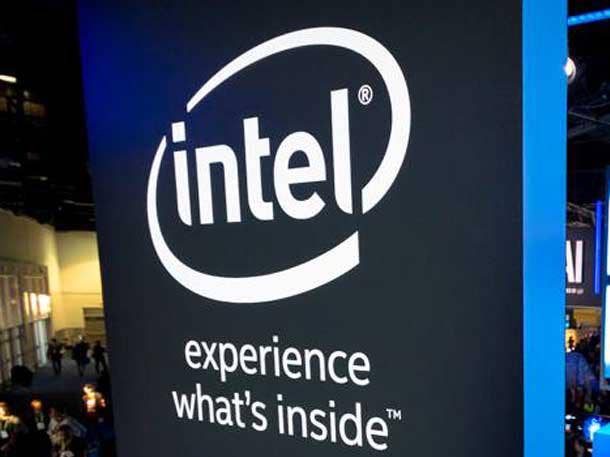
6. Intel: Amid $10 Billion In Cuts, CEO Pat Gelsinger Bemoans ‘Difficult Decisions’ Impacting ‘Loyal Intel Family’
Intel CEO Pat Gelsinger on October 27 laid out a “right-sizing” plan to cut $3 billion in 2023 and as much as $10 billion in costs by 2025 in moves that he said would impact headcount.
“Inclusive in our efforts will be steps to optimize our headcount,” acknowledged Gelsinger in a conference call with Wall Street analysts. “These are difficult decisions affecting our loyal Intel family.” Intel had 121,100 employees.
In a conference call with analysts, Gelsinger said the “abrupt and pronounced slowdown in demand” that the chip giant highlighted in June has “broadened beyond our initial expectations and is now having an industry-wide impact across the electronics supply chain.”
“The macroeconomic [situation is] unpredictable, a tough market. ... It’s just hard to see any points of good news on the horizon—inflation in the U.S., the situation in Europe with energy and the war [in Ukraine], and in Asia,” said Gelsinger
Bob Venero, CEO of Future Tech, Fort Lauderdale, Fla, No. 95 on the CRN 2022 Solution Provider 500, told CRN at the time that he had great confidence in Intel CEO Pat Gelsinger’s IDM (integrated device manufacturing) 2.0 turnaround plan.
“Pat Gelsinger knows what he’s doing, he’s making moves that are in the best interests of the stockholders and the company. Because of that, Intel is going to come out on the other end of this in a much better position,” he said. “At the end of the day, Intel is a staple of most corporation’s infrastructure from the front end to the back end. They are not going anywhere. If they did, we’d have a much bigger problem than worrying about numbers. We would have to worry about how our companies would run and function without Intel.”
Gelsinger, for his part, told analysts at the time that he remains upbeat about the company’s IDM 2.0 turnaround plan that tightly ties Intel foundries with integrated circuit design for both Intel and its foundry customers. That model establishes consistent processes, systems and guardrails among business unit, design and manufacturing teams.
“We’re staying true to the strategy—making cost adjustments and trying to balance market outlooks as we gain share in some segments and we fight for share in other segments,” said Gelsinger. “I was very pleased with how the team executed in improving our execution in an environment that was really quite tough.”
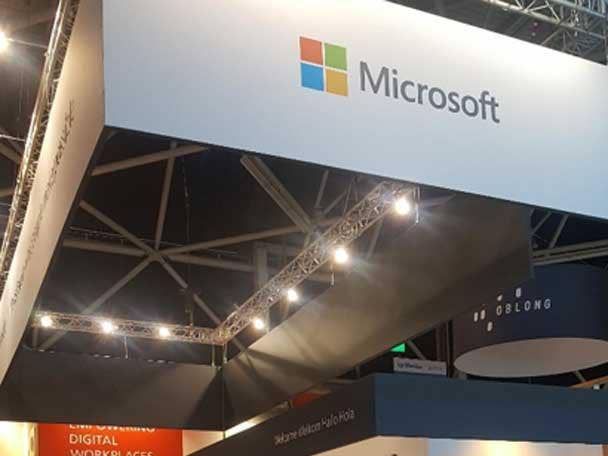
5. Microsoft: Partners Face NCE, Partner Capability Score Changes
Microsoft partners faced some of the biggest changes to partner program terms and conditions since the Microsoft Certified Solutions Provider program was launched some 30 years ago.
In an August cover story, CRN provided a first-hand look at how Microsoft’s 400,000-strong channel ecosystem was dealing with the (NCE) New Commerce Experience rules and the new Partner Capability Score requirements.
NCE has proven controversial with partners due to a 20 percent premium put on month-to-month subscriptions, which are popular with customers, compared to annual subscriptions.
The problem with annual subscriptions for partners is that partners can be on the hook for paying the duration of the subscription should a customer go out of business, get acquired or need fewer licenses.
What’s more, partners and customers are stuck together during the length of the contract, and partners are stuck with their distributors (known as “indirect providers” by Microsoft). Partners have asked Microsoft for a way to make licenses portable so that they can accept new customers who leave their existing MSP.
NCE’s requirement that does not allow partners to transfer licenses after seven days put some partners like Guardian Computer President Jean Prejean in an awkward position.
When Prejean brought on a new customer in April—one month after Microsoft began enforcing NCE changes—she was forced to deal with an old provider because the customer software license could not be transferred. “There’s nothing we can do,” she told CRN. “It’s hard to tell a new client, “Hey, but you’ve got to still deal with your old MSP for another 10 months … Sometimes there is bad blood in there.”
As Microsoft did away with Gold and Silver partner designations, it added a new measure for determining who becomes a Microsoft “solutions partner”—the partner capability score (PCS).
Like the 20 percent premium on month-to-month commitments, the score has proven controversial among partners who have voiced confusion on how to earn points and criticized the scoring system for emphasizing net new customers over keeping existing customers loyal.
Zac Paulson, CEO of TrueIT, a Fargo, N.D.-based Microsoft partner, called the new Partner Capability Score a “disaster.” He told CRN that he’s confused on what data the Partner Capability Score pulls from and how to get a more accurate measure for his business.
“We’re very well-versed in Dynamics, we do a ton of work in Dynamics … that shows me something’s broken,” Paulson said. “In my opinion, that does not represent the large buy-in our company has to Microsoft and the large spend we have with them either.”
In the midst of the partner program changes, Microsoft Channel Chief Rodney Clark, a 24-year Microsoft veteran who had held the channel chief job for 15 months, announced that he was leaving the company. Clark took a job as chief commercial officer for smart buildings technology provider Johnson Controls.
Besides the partner program upheaval, Microsoft also faced security issues, including a zero day vulnerability referred to as Follina that impacted Microsoft Office.
In a post on May 30, the Microsoft Security Response Center provided guidance on the Office vulnerability. “An attacker who successfully exploits this vulnerability can run arbitrary code with the privileges of the calling application,” said Microsoft in the post. “The attacker can then install programs, view, change, or delete data, or create new accounts in the context allowed by the user’s rights.”
In September, Microsoft also confirmed two zero day vulnerabilities found in Exchange. In a blog post on September 29, Microsoft acknowledged what Vietnamese cybersecurity company GTSC had previously announced: that there were indeed two major Exchange vulnerabilities and that they were being exploited in the wild.
“Microsoft is investigating two reported zero-day vulnerabilities affecting Microsoft Exchange Server 2013, 2016, and 2019,” the Redmond, Wash.-based company said in its post.
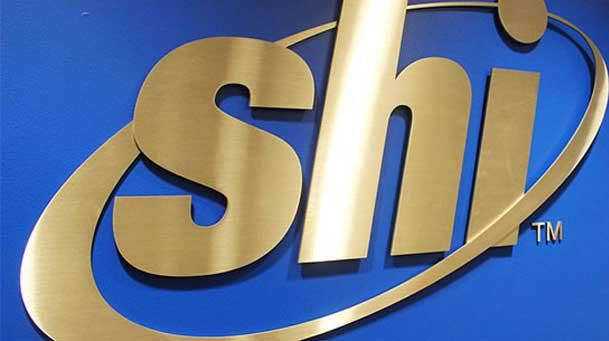
4. SHI International: Hit By ‘Coordinated And Professional Malware Attack’
SHI International, the $12.3 billion solution provider behemoth, No.13 on the 2022 CRN Solution Provider 500, had little cause for celebration over the July 4 weekend in 2022 as it was grappling with what it called a malware attack that took down its website and internal email.
In a blog post and in a message splashed across the front page of its website, Somerset, N.J.-based SHI said it was the target of a “coordinated and professional malware attack” during the long weekend.
As of July 6, SHI said its staff had access to “email again and the IT teams at SHI continue to work on bringing other systems back to full availability in a secure and reliable manner.”
On July 9, SHI confirmed that it had brought in a forensic service provider and law enforcement to help investigate the attack.
On July 11, SHI said the “vast majority” of its internal and external-facing systems were “fully operational.”
“Customers can now log in to their accounts on shi.com (enhanced security protocols are in place) and can resume placing and tracking orders,” said SHI in statement relating to the security incident. “All sales teams across SHI now have restored access to all systems necessary to help customers get quotes and pricing, place orders, and manage contracts.”
The SHI attack came just two months after international and U.S. cybersecurity authorities said they were aware of recent reports observing an increase in “malicious cyber activity targeting” MSPs and warned that they expect it to continue with stepped-up attacks on MSPs.
“The UK, Australian, Canadian, New Zealand, and U.S. cybersecurity authorities expect malicious cyber actors—including state-sponsored advanced persistent threat (APT) groups—to step up their targeting of MSPs in their efforts to exploit provider-customer network trust relationships.”
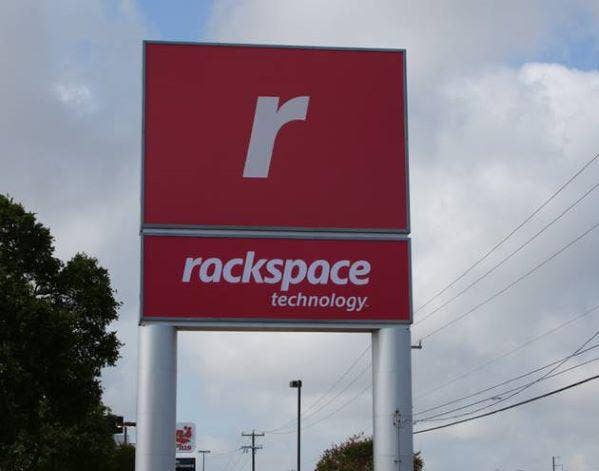
3. Rackspace: Hit By Ransomware Attack
Four days into a massive outage, Rackspace confirmed on December 6 what many customers already suspected: the company was hit by a ransomware attack.
The company, which faced blistering criticism on social media for its lack of transparency on the outage, announced in a blog post that a “ransomware incident” affecting its hosted Exchange environment was indeed the cause of the loss of email services for thousands of customers.
The company acknowledged that an unknown number of hosted Exchange customers were still without email services more than four days after the initial outage.
The company said it was in the “early stages” of assessing the incident and warned that it may continue to cause an interruption in its Hosted Exchange business, which generates approximately $30 million of annual revenue in its Apps & Cross Platform business.
“Rackspace is making available resources so that customers can migrate their users and domains to Microsoft 365,” it said in its blog post.
“At this time, we are unable to provide a timeline for restoration of the Hosted Exchange environment. We are working to provide customers with archives of inboxes where available, to eventually import over to Microsoft 365.”
With the FBI investigating the attack, Rackspace on December 14 confirmed that the ransomware attack had knocked out the email services of tens of thousands of customers. In addition, Rackspace said security superstar CrowdStrike had confirmed that here’s been no further attacker activity within Rackspace’s Hosted Exchange environment.
Rackspace at that point confirmed that it had restored email service to two-thirds of its customers since the outage was first reported nearly two weeks before. But the company also signaled that the outage was still impacting thousands of other customers on its Hosted Exchange. “We are also continuing to support the FBI’s investigation into the attack,” the firm reported on its blog.
As the year came to a close, Rackspace on December 27 issued yet another blog post informing customers that the data recovery process for Rackspace Hosted Exchange was “currently progressing as expected.”
“Our internal and external cybersecurity experts have and continue to work diligently to streamline the data recovery process through the dedicated data recovery workstream,” the company said. “These experts have been working meticulously through an extensive and systematic process to recover data on the Hosted Exchange email environment servers so that we can extract email data and deliver the recoverable data to our customers in an organized and secure manner.”
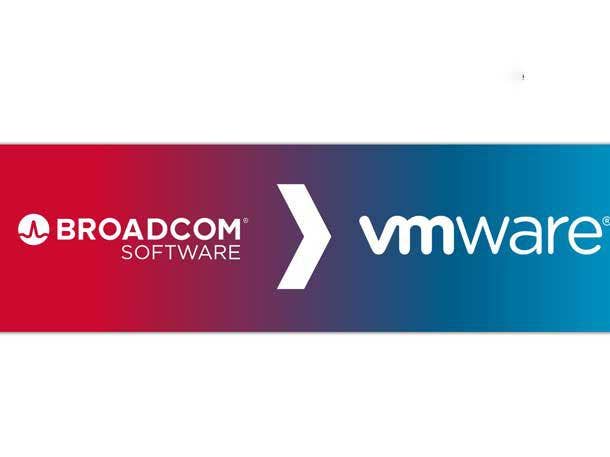
2. Broadcom: Faces Partner Fallout From Proposed VMware Acquisition
When Broadcom on May 26 announced its $61 billion deal to acquire VMware, there was an immediate backlash from solution providers concerned that the deal would slow innovation and sales at the virtualization software market leader.
“Broadcom claims they are trying to get into the multicloud and hybrid cloud game with this acquisition. They need to show they are not just in maintenance mode, milking the VMware renewals,” one Solution Provider 500 CEO, who counted himself as one of VMware’s biggest supporters for many years, told CRN. “They need to use all that cash rolling in from VMware to innovate. They need to show there is a plan to transform and pull all this technology together and that this is not just a final resting place for VMware.”
The deal, expected to close in 2023, raises prospects that partners—who have considered VMware a channel stalwart for many years—will reevaluate their partnership with the company, solution providers said.
Several partners told CRN they are worried that Broadcom will use the acquisition to make significant cuts to VMware’s research and development efforts and its sales, general and administrative expenses based on its behavior in past acquisitions.
Since Broadcom acquired Symantec’s enterprise security business in 2019 for $10.7 billion and CA Technologies’ software portfolio in 2018 for $18.9 billion, it has cut the cost base at those two businesses by 60 percent to 70 percent, according to a report from Sanford C. Bernstein & Co.
A top sales chief for a Solution Provider 500 company, who did not want to be identified, said there is a lot of angst in both the channel and among VMware employees in the wake of the blockbuster deal. “There are a lot of people in the channel and at VMware that are nervous looking at the future,” he said. “It’s a very weird and odd acquisition.”
VMware CEO Raghu Raghuram, for his part, told partners at CRN parent The Channel Company’s Best of Breed conference on October 11 to “expect a lot more empowerment” under the umbrella of Broadcom CEO Hock Tan, should the $61 billion merger cross the finish line.
“He believes in a very controlled direct approach and a much larger indirect approach,” Raghuram said. “So, he thinks that combination is the right combination. When it comes to indirect, he is very much in favor of having the partners do more. You should expect a lot more empowerment and support for the indirect community in the future.”
Raghuram also urged customers that are concerned that prices may go up after the deal closes to sign early renewals. “There are customers who have said, ‘I want to come in and do an early engagement with VMware, do an early renewal,’ and we are doing that all day long,” he said.
As the year came to a close, European regulators raised issues about the proposed deal. On December 20, The European Commission announced an “in depth” investigation of the merger. The Commission said it was concerned that after the merger, Broadcom could prevent its hardware rivals from interoperating with VMware’s server virtualization software. “This would lead to higher prices, lower quality and less innovation for customers and consumers,” said Margrethe Vestager, European Commission executive vice president in charge of competition policy, in a statement.
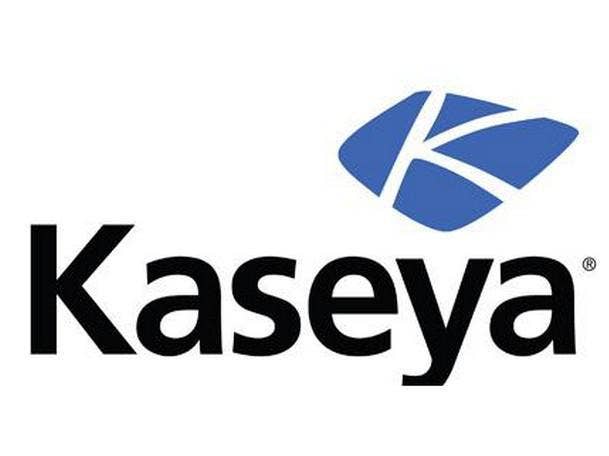
1. Kaseya: Grapples With Culture Clash After Blockbuster Datto Acquisition
Kaseya’s $6.2 billion acquisition of MSP mainstay Datto and solution provider concerns over the ensuing cultural clash made it the No. 1 most controversial company of 2022.
When the blockbuster deal was announced on April 11, Kaseya CEO Fred Voccola hailed Datto’s “legendary commitment to its customers and employees.” What’s more, Voccola pointed to the “alignment” of the two companies’ “missions and focus” as making the combination a “natural fit.”
That natural fit was questioned from the outset by some MSPs who were concerned that Kaseya would not provide the same high-level partnership and channel-friendly experience they had become accustomed to at Datto. A number of MSPs, in fact, said they would consider moving off Datto in the wake of the deal, even as others cautioned against a rush to judgement.
Voccola, for his part, told CRN he was firmly committed to investing in Datto’s strong channel culture, product set and brand. “We’re spending $6.2 billion to buy an awesome company,” he told CRN in an interview in April in the wake of the deal. “The last thing that we want to do is make it unawesome. When we buy companies, we buy them for a reason. They’re great. We don’t [mess] with the culture and we don’t change the brand.”
After Kaseya closed the deal on June 23, Voccola lashed out at competitors that he claimed were spreading FUD (fear, uncertainty and doubt) about the deal.
“It [ticks] me off because our competition is out there spreading FUD—fear, uncertainty and doubt—saying, ‘Oh, everything about Datto is going to go away,’” Voccola told CRN. “That’s stupid. ... And when they say that, they’re just trying to take advantage of the fact that we couldn’t come out and say the truth because Datto is a public company. Now we can. Those are facts. Hold me accountable.”
After seeing the details of deal, some MSPs told CRN they are optimistic the it would help grow the industry and their business.
Dave Seibert, CIO of IT Innovators, an Irvine, Calif.-based MSP that works with both Kaseya and Datto as well as with their chief rival ConnectWise, said that it was an exciting time for MSPs. “From the partner point of view, I see the energy, the momentum, and the sincerity of what Kaseya is doing with Datto,” Seibert told CRN. “And I see the vision of what they are doing.”
That vision was questioned just 16 days after deal was finalized by Datto founder and former CEO Austin McChord, who accused Kaseya of destroying the Datto culture in a blistering diatribe that claimed post acquisition changes were damaging the one-time MSP high flyer.
“This sucks,” wrote McChord in the GitHub post that also appeared on LinkedIn. “It feels like you just bought a leading football team and are in the process of breaking all the players’ legs. This is not a winning strategy. It will hurt the entire MSP industry.”
McChord, who founded Datto in 2007 as a college student working in his family’s basement and stepped aside four years ago, said that he decided to speak out after “many members” of the Datto team reached out “deeply dismayed” by changes Kaseya was making. “There is a concern that the current trajectory from Datto’s new owners will snuff the flame that makes Datto a place to come ‘Do your life’s work,’” he wrote.
Cautioning that he is no longer associated with the company and that the information he is receiving is “second hand,” McChord pointed to benefit changes that include reducing 401K match from 4.5 percent to zero percent; maternity leave from 16 weeks to three weeks, and a reduction in vacation/PTO.
Furthermore, McChord cited what he called a move to sideline “employee resource groups that support under-represented people at the company” and not treating the office as a “hub for community anymore: ‘No more hanging out in the office.’”
Finally, McChord claimed that Kaseya was “looking for long-term changes to budgets with decreases in excess” of 30 percent.
It was what happened in the wake of that McChord rant that put the cultural clash in the spotlight.
On July 7, Voccola hosted a profanity-laced two hour town hall meeting to welcome new Datto employees that cemented concerns that the open, socially conscious corporate culture they loved at Datto would disappear.
During the in-person session held at Datto’s Norwalk, Conn., headquarters, Voccola lashed out at an unnamed former Datto leader and also said that Kaseya chooses not to take a position on any social issue, a stance that threatened the ongoing existence of Datto employee resource groups aimed at supporting marginalized populations, according to a video recording of the session that was viewed by CRN.
Voccola’s unvarnished style was on full display as he repeatedly insisted throughout the session that he was “not being a d*ck” as he addressed questions posed by the incoming Datto employees.
Following the July 7 meeting in Norwalk and another held in Boston, multiple current and former Datto employees expressed anger in interviews with CRN over their concern that the Datto culture—which Kaseya had vowed to keep—was vanishing overnight.
“Three weeks ago, I would have said this is my dream job. I have a purpose and the freedom to execute on my goals,” one incoming Datto worker who asked to remain anonymous for fear of reprisal told CRN. “After the town hall, and the first few days here [at Kaseya], myself and everyone on my team have applied for multiple jobs.”
In an interview with CRN to address the concerns raised after the town hall, Voccola said his focus on maintaining Datto culture centers largely on retaining its strong relationships with MSPs and that he sees things like benefits as a separate question.
“I got asked the question, ‘Are you changing the culture of Datto? You said you weren’t going to. What’s up, dude, you full of sh*t?’ We bought Datto for its culture, its brand, its people. Datto is awesome to MSPs. Datto really takes care of its customers. They have great tech, and they have a culture of innovation. Datto and MSP are like synonyms. That’s the culture we bought. That’s what I mean when I say we don’t want to change that culture,” Voccola told CRN. “What we do with our health insurance, or our 401k matching, they are important to employees. No doubt. I don’t view that as culture. I view that as how do we make sure our employees are compensated at the top end of the market. Compensation is cash, equity, stock benefits, all that kind of cr*p. And somehow, the message has been mixed.”
Solution providers that had worked with Datto got word of more change ahead in November with the departure of highly regarded Datto MSP advocate Rob Rae. Voccola told CRN after the deal closed in June that Rae would be sticking around. “Rob’s awesome,” Voccola told CRN. We love Rob. I tried to hire Rob for the last six years, so we got Rob finally. It took us buying Datto to get Rob Rae to be an employee.”
On December 1, CRN reported that Ryan Weeks, lauded for building a cyber-defense system to protect MSPs that “rivaled anything a large bank could muster,” had left his role as Datto’s CISO.
Michael Cervino, vice president of operations at Radnor, Pa.-based MSP Circle Square Consulting, told CRN in the wake of Weeks’ departure that he had “some serious concerns” going forward as a Datto partner.
“Kaseya’s track record on security is not the best, so it doesn’t make me feel good,” Cervino said of Weeks’ departure from the CISO role, referencing the ransomware attack that hit Kaseya in July 2021. “We’ll be re-evaluating our relationship with Datto and/or Kaseya as a whole.”
That attack put Kaseya at the top of CRN’s list of the most controversial companies of 2021.
As 2022 came to a close, Voccola pointed ahead to the company’s robust event lineup for 2023 and the opportunities it will create for customers to connect with the company and their peers across five large customer-centric conferences, including DattoCon. “From the CEO of an MSP to a technician on an internal IT team, there is going to be something for everyone in 2023,” he said in a December 19 press release.